I will start this post with a question that I will reflect on later: How do we use technology to improve our lives and the lives of others?
This question popped up in my head when I saw a random suggested post on Instagram that shared a message along the lines of, “Normalize taking breaks, relaxing, and not working all the time.” I went into the comments and noticed the affirmations of the messages and cheers against “hustle culture,” etc.
Cool.
Then I went to the profile page of the Instagram account and noticed that it posted messages similar to that approximately six times a day on that account alone, over and over again.
It seems like whoever is running that account is working hard and probably monetizing the message that affirms the beliefs of others.
Or maybe the account is automated or run by a “team” finding out what resonates with others and gets the most traction. Perhaps artificial intelligence is creating all of the content.
Either way, the “modelling” of the account didn’t necessarily match the message.
It is not that I disagree with the message of “taking breaks,” etc., but I struggle to understand where it is coming from and why it is being shared. Critical media consumption is necessary.
Here is one I struggle with personally: I often find myself getting sucked into buying specific supplements, protein powders, or other fitness products when I see someone who seems to be really athletic pushing the product. Often, those same influencers are leaving out the fact that they might be using steroids or human growth hormone, which honestly, you do you, but that is kind of an important detail to have left out.
Did you get absolutely jacked because you took a liver pill or because you have been doing cycles of testosterone for over a decade?
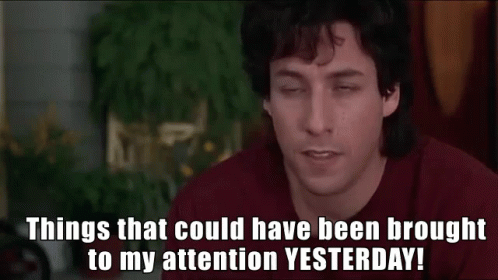
This year, I have reduced my social media usage and been more critical of my consumption. I have no interest in joining new social networks because I have learned in the past that if I look at my day in terms of being 100% and I break down what I do in terms of percentages (for example, sleeping takes up 33% of my day), any time I join a new network, the time taken is out of the wrong buckets. For example, when I first joined TikTok, my “sleep” percentages went down, and sometimes, my time spent paying attention to my kids also waned. It didn’t necessarily lessen my time on Twitter or email.
It was taking a percentage of my time from the wrong buckets.
Jonathan Haidt’s “Anxious Generation” has taken the world by storm in 2024, and I have mentioned it several times in this blog. There is much in the book that I agree with, but I think the viewpoint is too focused on youth and not enough on the negative impact that social media is having on adults.
We can quickly point out that kids are having problems, but I often wonder where they learn this from.
Here is something that caught me off guard: on Jonathan Haidt’s Instagram account, he (or his team) posted an encouraging message to have a “Phone Free Friday” on social media (there are hundreds of likes and comments on the post).
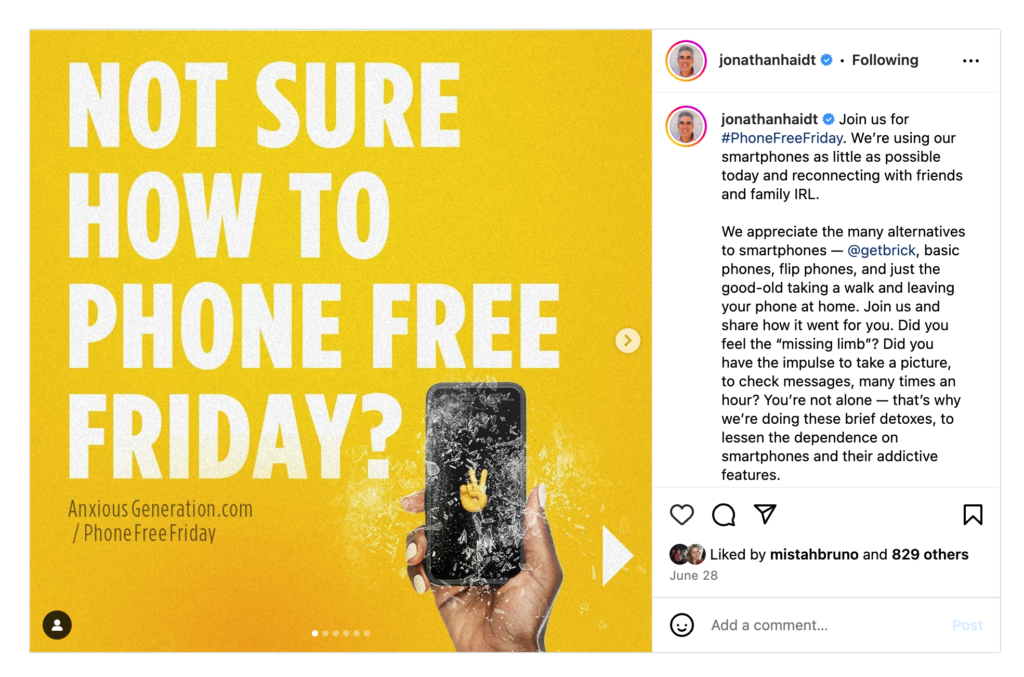
You can even go to the site anxiousgeneration.com/phonefreefriday to sign up, recommend it to 3 friends (by giving their names on the site), receive an email on #PhoneFreeFriday (that’s the hashtag!) and send updates of your photos, videos, and stories (I am guessing not by mail).
If you thought I was kidding, you can see the screenshots from the site below:
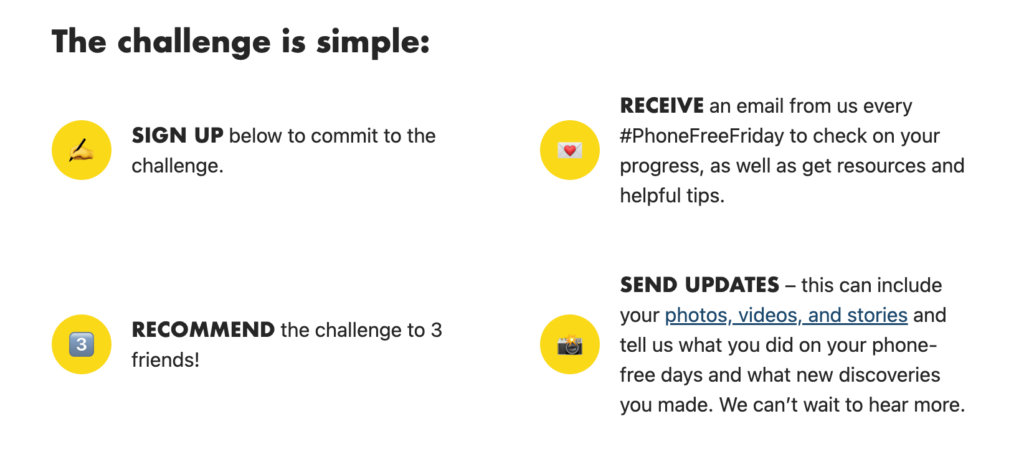
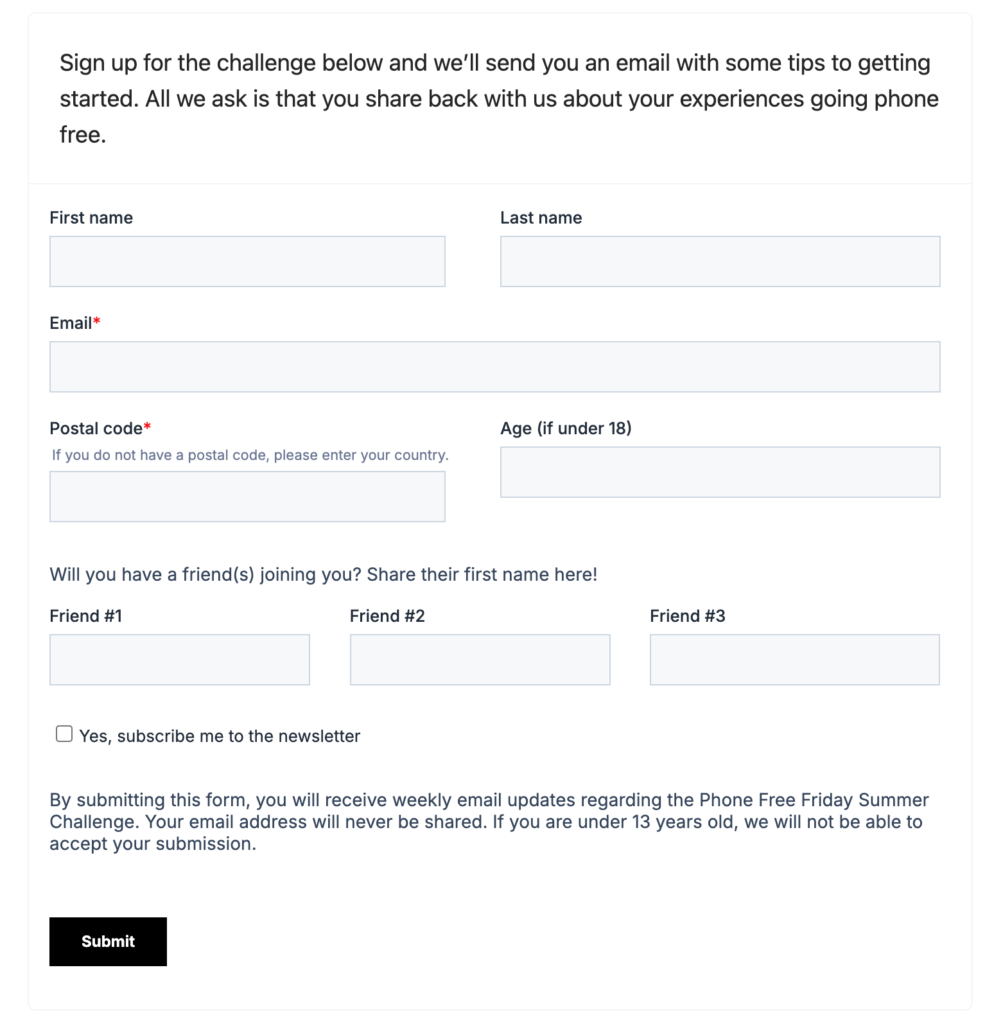
Now, this initiative was meant to run from June 14 to August 15 (2024), with the hopes of spreading it via social media (hence the hashtag #PhoneFreeFriday), and I get the positive intent behind this. However, there is an irony in trying to start a movement via social media with adults to get the kids off social media.
Even more ironic is sharing your photos from #PhoneFreeFriday. I wonder where this media is coming from.
Think of all of the encouragements on using artificial intelligence in education. Books came out as quick as possible, and I do wonder how much of those books were written by people, versus the technology in which they are advocating. I am not sure who initially wrote it, but why would I want to read a book by someone who didn’t care enough to write it? We are slowly moving to a world where the machines are doing the reading and the writing. Does that make us better or worse?
This is why I will continuously ask the question: Why not teach students how to leverage these tools positively instead of just hoping for the best when they reach adulthood?
Spreading a message and making positive change using these tools can be beneficial (as evidenced by Haidt himself), so why not teach that to others?
So, back to the question at the beginning of the post: How do we use technology to improve our lives and the lives of others?
I will default to this quote from Cal Newport’s book Digital Minimalism. (Interestingly enough, I read it on the Kindle app on my iPhone.)
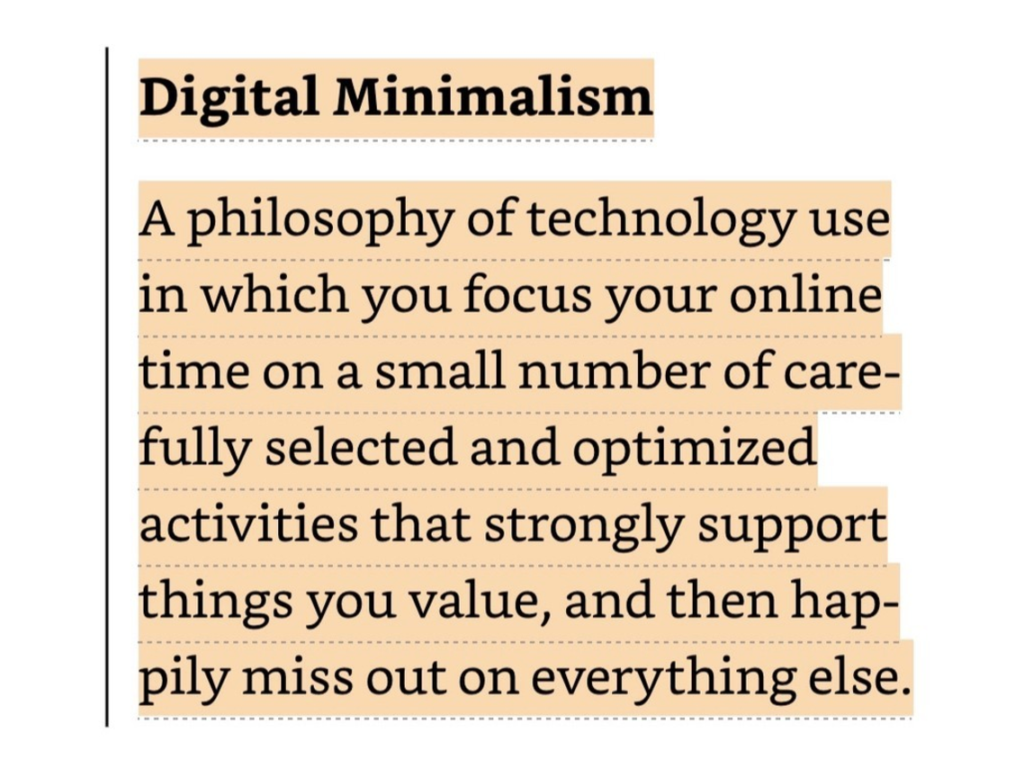
Before I read the book, I was already going through this process unintentionally, but this helped me articulate and synthesize some questions about what I was hoping to achieve. Here are a few:
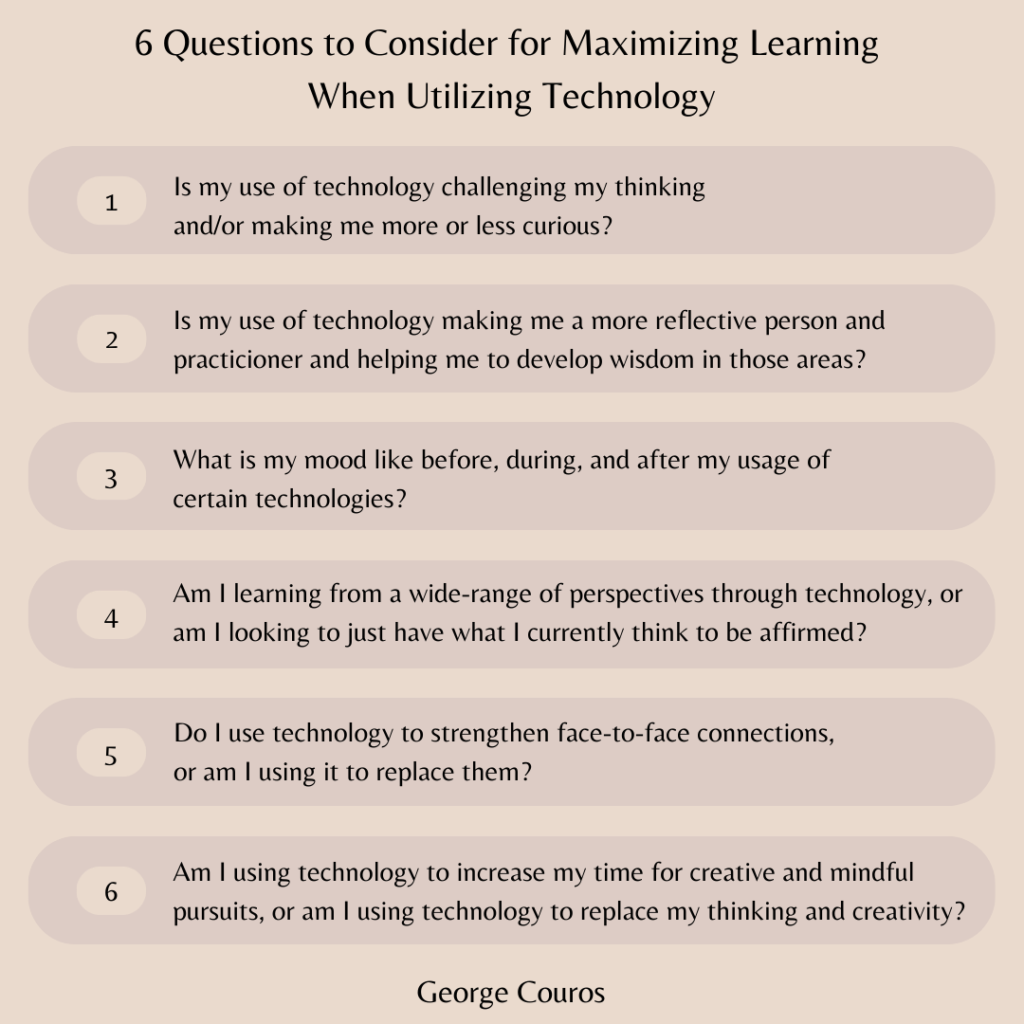
I have spent the last hour in a Starbucks writing this out on my computer, doing some research, connecting quotes and images, and trying to be reflective in my practice. To me, that is an excellent hour on technology because I think it has helped me to be more reflective while being thoughtful so that others can read what I have to share.
But I could also have spent the last hour scrolling through TikTok mindlessly. Honestly, there are times when I need that, and I don’t see it as a bad thing, but I definitely don’t see it as productive time.
So, going back to the original question in the post: How do we use technology to improve our lives and the lives of others?
First of all, we determine how we use technology, but we can easily fall into the trap of technology using us. It is easy to fall into the trap of getting sucked into following accounts that hope for you to stay stuck into needing them for more because that is to their benefit (this is part human and part algorithm manipulation). A simple analogy to consider is that if you were to hire a great personal trainer, they would be truly great if they taught you not to need them eventually.
Secondly, read your mood while using any technology. Is it lifting you up? Giving you more energy? Challenging your thinking? Or, are you in the same place or worse off from when you first turned on the machine?
If the technology you are using is making a) you b) your life or c) the lives of others better, then you are in a good space.
Otherwise, as Newport states, it is okay to miss out (and do so happily).